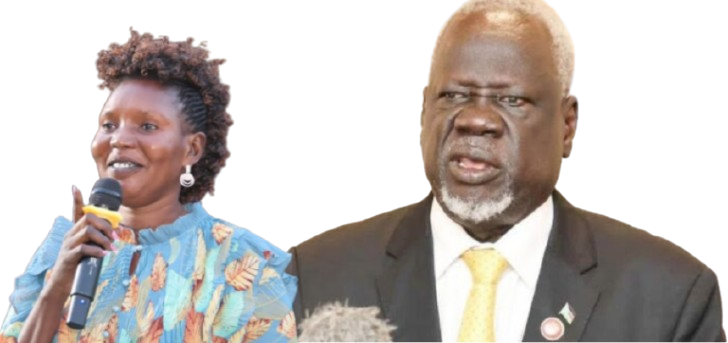The Jonglei State Legislative Assembly has remained nonfunctional since the beginning of the year due to a lack of funding from the executive branch, according to Speaker Amer Ateny Alier.
In an interview with Radio Tamazuj, Ateny said the assembly was scheduled to resume sittings on March 25 but failed to reopen because of financial constraints and political disagreements with Governor Dr. Riek Gai Kok.
“On March 25, 2025, the assembly was to resume operations,” she said. “However, the problem is that I have not been able to meet the governor. We prepared a budget for the resumption of the assembly, but no funds were allocated.”
Ateny, who is a senior member of the SPLM-IO led by detained First Vice President Dr. Riek Machar, said her attempts to meet the governor have been blocked by bureaucratic hurdles.
“As the second or third-highest official in the state, I have not been able to meet the governor because I must seek approval from the state secretary-general. This makes it difficult for me to operate,” she said.
She said some senior government officials in Juba had advised her to join the SPLM-IO faction led by Peacebuilding Minister Stephen Par Kuol, but she declined.
The speaker said poor living and working conditions in Bor, the state capital, had forced her to relocate to Juba.
“I have been in Juba for four months now. There is no electricity in the office. Every day, I had to walk for hours to get there. It was a difficult situation,” she said.
However, Manath Gany Lual, press secretary in Governor Kok’s office, denied any political dispute between the speaker and the governor.
“The speaker is just too emotional. There is no disagreement,” he said.
Civil society activist Ter Manyang, executive director of the Center for Peace Advocacy, said the assembly has been inactive since the term of former speaker Mahjoub Biel Turuk.
“The lawmakers are just roaming around,” Manyang said. “We cannot expect the assembly to reopen when there is no good relationship between the governor and the speaker. This closure is happening at the expense of citizens.”
Edmund Yakani, executive director of the Community Empowerment for Progress Organization (CEPO), also raised concerns about nonfunctioning state assemblies across the country.
“Some states are only functioning with the executive branch, without the legislative organ. This has paralyzed checks and balances,” Yakani said.
He called on the president and the Council of States to ensure that governors are given clear directives to reopen state legislatures and restore full functionality to state governments.




